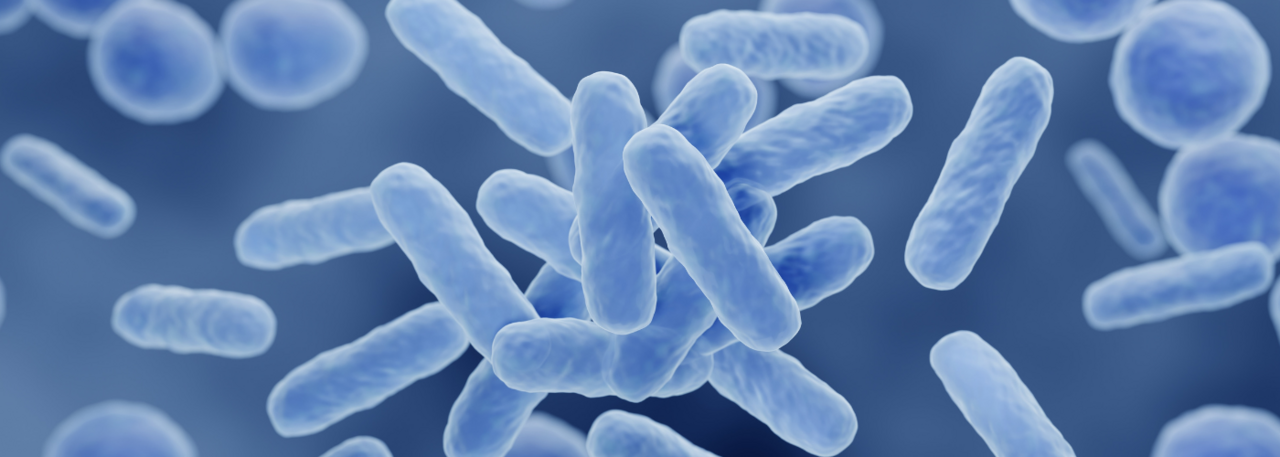Digestive Enzymes vs. Probiotics: What’s the Difference & Which One Do You Need?
Key Takeaways:
- Digestive enzymes and probiotics support gut health in different but complementary ways.
- Digestive enzymes help break down food for better nutrient absorption.
- Probiotics replenish and balance gut bacteria, supporting long-term digestive and immune health.
- You can take both together—especially for gut imbalances like bloating, IBS, or after antibiotic use.
- Supplementing with butyrate and TUDCA alongside enzymes and probiotics can enhance overall gut function and toxin elimination.
Table of Contents:
- What Are Digestive Enzymes?
- What Are Probiotics?
- Key Differences Between Digestive Enzymes and Probiotics
- Benefits of Digestive Enzymes
- Benefits of Probiotics
- Which One Should You Take for Better Digestion?
- Can You Take Digestive Enzymes and Probiotics Together?
- Final Thoughts on Choosing the Right Gut Health Supplement
What Are Digestive Enzymes?
Digestive enzymes are proteins your body produces to help break down food into absorbable nutrients. These enzymes include:
- Amylase – breaks down carbohydrates
- Protease – breaks down proteins
- Lipase – breaks down fats
- Lactase – breaks down lactose
Your pancreas, stomach, and small intestine naturally produce these enzymes, but many people experience enzyme insufficiencies due to stress, age, or chronic conditions. Enzyme supplements can help compensate and support more efficient digestion, especially for those with bloating, gas, or food intolerances.
What Are Probiotics?
Probiotics are live beneficial bacteria that support a balanced gut microbiome. Found in fermented foods like yogurt and sauerkraut, and also in supplement form, probiotics help:
- Crowd out harmful bacteria
- Maintain a strong gut lining
- Support immune function
- Produce short-chain fatty acids like butyrate, which nourish gut cells
Unlike enzymes, probiotics don't directly break down food. Instead, they maintain the environment where digestion, nutrient absorption, and immune communication can flourish. They're particularly useful for those dealing with IBS, antibiotic recovery, or general gut dysbiosis.
Key Differences Between Digestive Enzymes and Probiotics
|
Feature |
Digestive Enzymes |
Probiotics |
|
Function |
Break down food |
Balance gut bacteria |
|
Source |
Produced by body or supplements |
Found in food or supplements |
|
Primary Benefit |
Improved digestion and nutrient absorption |
Gut balance and immune support |
|
Best For |
Bloating, food intolerance, nutrient deficiencies |
IBS, gut dysbiosis, post-illness |
|
Immediate Effect |
Yes |
Gradual |
While digestive enzymes are fast-acting and provide immediate relief after meals, probiotics work over time to restore the health of your gut ecosystem. That's why many gut health experts recommend using both for a full-spectrum approach.
Benefits of Digestive Enzymes
Digestive enzyme supplements are among the most effective gut health tools for immediate digestive support. Benefits include:
- Reduced bloating and gas: Especially after eating fiber-rich or fatty meals.
- Better nutrient absorption: Helps prevent deficiencies due to maldigestion.
- Support for food sensitivities: Enzymes like lactase and glutenase can help manage dairy or gluten intolerance.
- Improved regularity: Supporting full breakdown of food minimizes fermentation and irregular bowel movements.
Enzyme supplements are also helpful when the pancreas isn't producing enough digestive enzymes (as in pancreatic insufficiency) or after gallbladder removal when fat digestion is compromised. In these cases, combining digestive enzymes with TUDCA, a bile acid, may support optimal fat breakdown and liver function.
Benefits of Probiotics
Probiotics offer a wide range of gut and systemic health benefits:
- Restores microbial balance: Especially after antibiotics or illness.
- Supports gut lining integrity: Helps prevent leaky gut.
- Reduces symptoms of IBS: Especially bloating, constipation, and irregular bowel movements.
- Boosts immunity: Over 70% of your immune system lives in your gut.
- Promotes production of butyrate: A short-chain fatty acid critical for colon health and anti-inflammatory signaling.
choosing a multi-strain probiotic with clinically studied strains for digestion, like Lactobacillus acidophilus, Bifidobacterium longum, and Saccharomyces boulardii.
Which One Should You Take for Better Digestion?
The choice between digestive enzymes and probiotics depends on your symptoms and goals:
- For bloating after meals: Start with digestive enzymes. Look for blends with amylase, protease, and lipase.
- For long-term gut balance: Incorporate probiotics daily, especially after antibiotics or illness.
- For IBS: A combination of both is often the most effective, especially when paired with butyrate supplements to calm inflammation and improve motility.
- For fat digestion issues: Enzymes + TUDCA can help emulsify and break down fats efficiently.
If your digestion feels sluggish, inconsistent, or you experience frequent food intolerances, a combo approach may be your best bet.
Can You Take Digestive Enzymes and Probiotics Together?
Yes! Digestive enzymes and probiotics work synergistically and are safe to take together. In fact, many people experience optimal digestive relief when combining both.
Enzymes handle the mechanical part of digestion, breaking down food in the upper GI tract. Probiotics maintain microbial harmony in the lower GI tract. Together, they:
- Reduce bloating
- Support nutrient absorption
- Reinforce gut barrier integrity
- Reduce inflammation
To further optimize gut health, consider adding butyrate (to nourish the colon and reduce inflammation) and TUDCA (to support bile flow and detox pathways).
Final Thoughts on Choosing the Right Gut Health Supplement
Digestive enzymes and probiotics aren't mutually exclusive. One supports the breakdown of food; the other supports the balance of your gut bacteria. Used together, they offer a powerful one-two punch for digestive wellness, especially when combined with cellular gut-supporting nutrients like butyrate and TUDCA.
Whether you're dealing with post-meal bloating, chronic digestive issues like IBS, or just want to optimize your gut health, building a supplement stack that includes digestive enzymes, probiotics, and gut-repairing nutrients can help you feel better, absorb more from your food, and strengthen your gut from the inside out.
Bodke, H., & Jogdand, S. (2022). Role of Probiotics in Human Health. Cureus, 14(11), e31313. https://doi.org/10.7759/cureus.31313
Hungin, A. P. S., Mitchell, C. R., Whorwell, P., Mulligan, C., Cole, O., Agréus, L., Fracasso, P., Lionis, C., Mendive, J., Philippart de Foy, J. M., Seifert, B., Wensaas, K. A., Winchester, C., de Wit, N., & European Society for Primary Care Gastroenterology (2018). Systematic review: probiotics in the management of lower gastrointestinal symptoms - an updated evidence-based international consensus. Alimentary pharmacology & therapeutics, 47(8), 1054–1070. https://doi.org/10.1111/apt.14539
Johns Hopkins Medicine. (n.d.). Digestive enzymes and digestive enzyme supplements. Retrieved April 1, 2025, from https://www.hopkinsmedicine.org/health/wellness-and-prevention/digestive-enzymes-and-digestive-enzyme-supplements
Rao, R. K., & Samak, G. (2013). Protection and Restitution of Gut Barrier by Probiotics: Nutritional and Clinical Implications. Current nutrition and food science, 9(2), 99–107. https://doi.org/10.2174/1573401311309020004
Rathi, A., Potale, S., Vaze, R., Muley, A. B., & Jadhav, S. (2024). In vitro simulated study of macronutrient digestion in complex food using digestive enzyme supplement. Heliyon, 10(9), e30250. https://doi.org/10.1016/j.heliyon.2024.e30250
Spagnuolo, R., Cosco, C., Mancina, R. M., Ruggiero, G., Garieri, P., Cosco, V., & Doldo, P. (2017). Beta-glucan, inositol, and digestive enzymes improve the quality of life of patients with inflammatory bowel disease and irritable bowel syndrome. European Review for Medical and Pharmacological Sciences, 21(2 Suppl), 102-107. Retrieved from https://www.eurrevmedpharmacolci.com/
Ullah, H., Di Minno, A., Piccinocchi, R., Buccato, D. G., De Lellis, L. F., Baldi, A., El-Seedi, H. R., Khalifa, S. A. M., Piccinocchi, G., Xiao, X., Sacchi, R., & Daglia, M. (2023). Efficacy of digestive enzyme supplementation in functional dyspepsia: A monocentric, randomized, double-blind, placebo-controlled, clinical trial. Biomedicine & Pharmacotherapy, 169, 115858. https://doi.org/10.1016/j.biopha.2023.115858
Wiertsema, S. P., van Bergenhenegouwen, J., Garssen, J., & Knippels, L. M. J. (2021). The Interplay between the Gut Microbiome and the Immune System in the Context of Infectious Diseases throughout Life and the Role of Nutrition in Optimizing Treatment Strategies. Nutrients, 13(3), 886. https://doi.org/10.3390/nu13030886
Zhu, L. B., Zhang, Y. C., Huang, H. H., & Lin, J. (2021). Prospects for clinical applications of butyrate-producing bacteria. World journal of clinical pediatrics, 10(5), 84–92. https://doi.org/10.5409/wjcp.v10.i5.84






